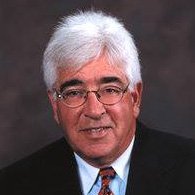Electronic Payment Processing – Are You Getting Ripped Off?
June 29, 2015
 I recently did a survey of current clients asking them what percentage of gross receipts were attributed to credit cards. 35-40% seemed to be the number. Very few patients pay by cash anymore–it’s either a check or credit card. So on a million-dollar practice–certainly a nice practice but nothing unusual these days–that would represent $400,000. The average published processing fee of a credit card company is 3% of the sale. That is the amount the practice pays to the merchant service provider. In this example, that would be $12,000.
I recently did a survey of current clients asking them what percentage of gross receipts were attributed to credit cards. 35-40% seemed to be the number. Very few patients pay by cash anymore–it’s either a check or credit card. So on a million-dollar practice–certainly a nice practice but nothing unusual these days–that would represent $400,000. The average published processing fee of a credit card company is 3% of the sale. That is the amount the practice pays to the merchant service provider. In this example, that would be $12,000.
But when I examined expense reports to analyze the total amount of processing fees charged to the practice, it was often more than 3% – sometimes between 4 and 4 and 1/2%. Why should that be? There are a number of potential reasons:
• The true costs associated with processing are not disclosed.
• The electronic processing and merchant service industry is mostly unregulated when it comes to billing and sales practices.
• There is an extremely complex and cloudy system by which processing costs are determined.
If your analysis shows similar results, I would strongly suggest that you contact Schooley Mitchell. It is the largest independent payment processing consulting organization in North America. Here is how they work. They monitor your credit card statements on a quarterly basis to identify all of the bogus or seemingly incidental fees that creep in. Fees like interchange rates, dues and assessments, monthly access fees, front end authorization fees and back end capture fees. The cost for the analysis they provide is on a 50% contingency basis: their fees are self funded out of the savings generated from reduced processing expenses. They claim to consistently save their clients 40% if they switch to a new credit card provider or 30% if the client chooses to stay with their existing credit card provider.
Schooley Mitchell has a strong incentive to do a good job. The more they save you, the more money they make. You take no risk. They will either save you money and self fund their fees, or give you a no-cost validation that you are receiving the best overall value for your existing services.
There is another very important reason to revisit your electronic payment processing protocol. In the United States, the migration from magnetic stripe cards to embedded chip cards is underway. The liability for fraudulent transactions is changing along with the switch to chip payment technology. Currently, banks absorb the majority of fraudulent credit card costs. But as of October 2015, if a customer pays for services with a fraudulent chip embedded card–and your practice processes that transaction without a chip embedded terminal–you will be liable for that transaction.
It is a different world out there my friends! Forewarned is forearmed.
No Comments
No comments yet.
RSS feed for comments on this post.
Sorry, the comment form is closed at this time.

